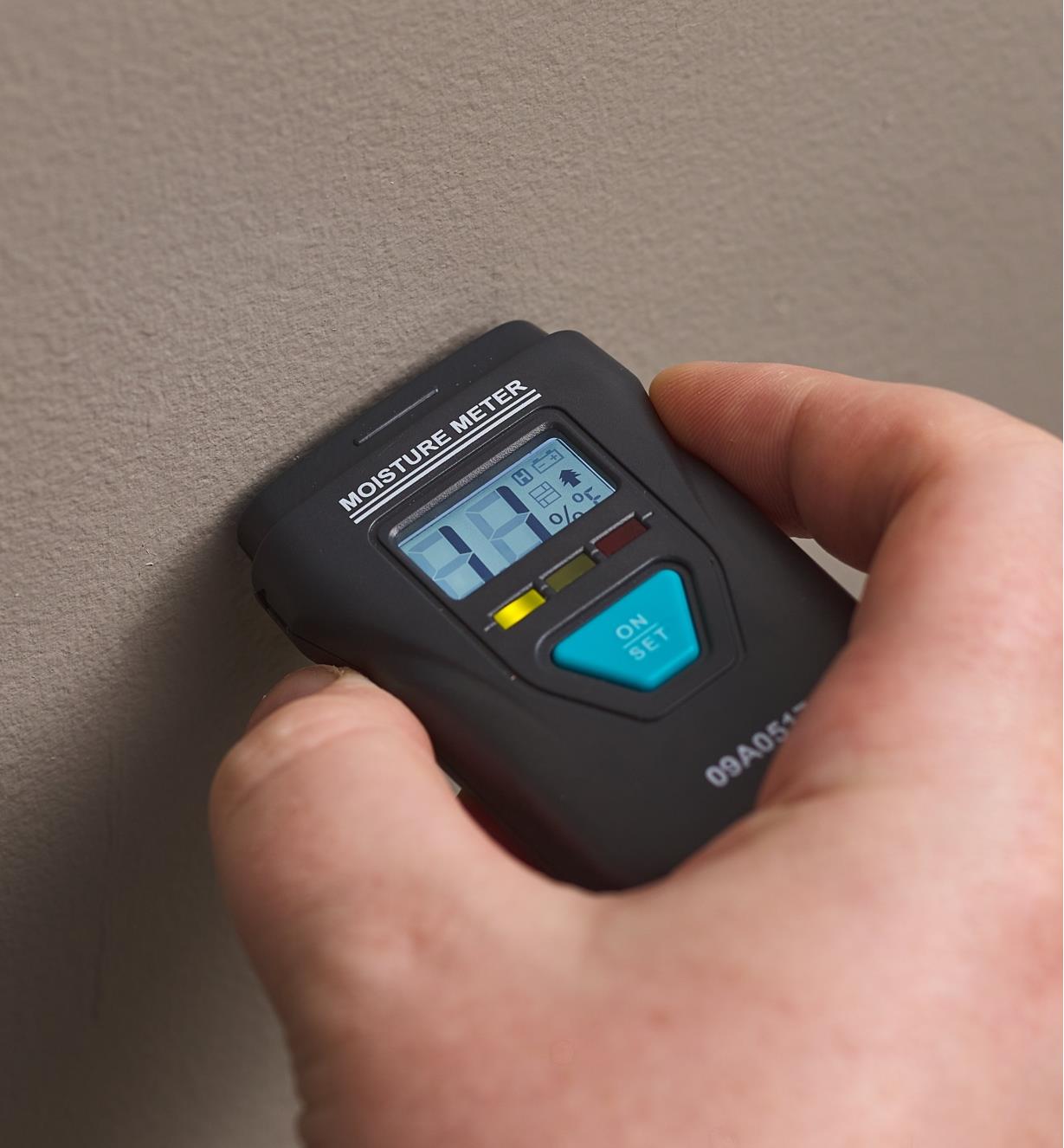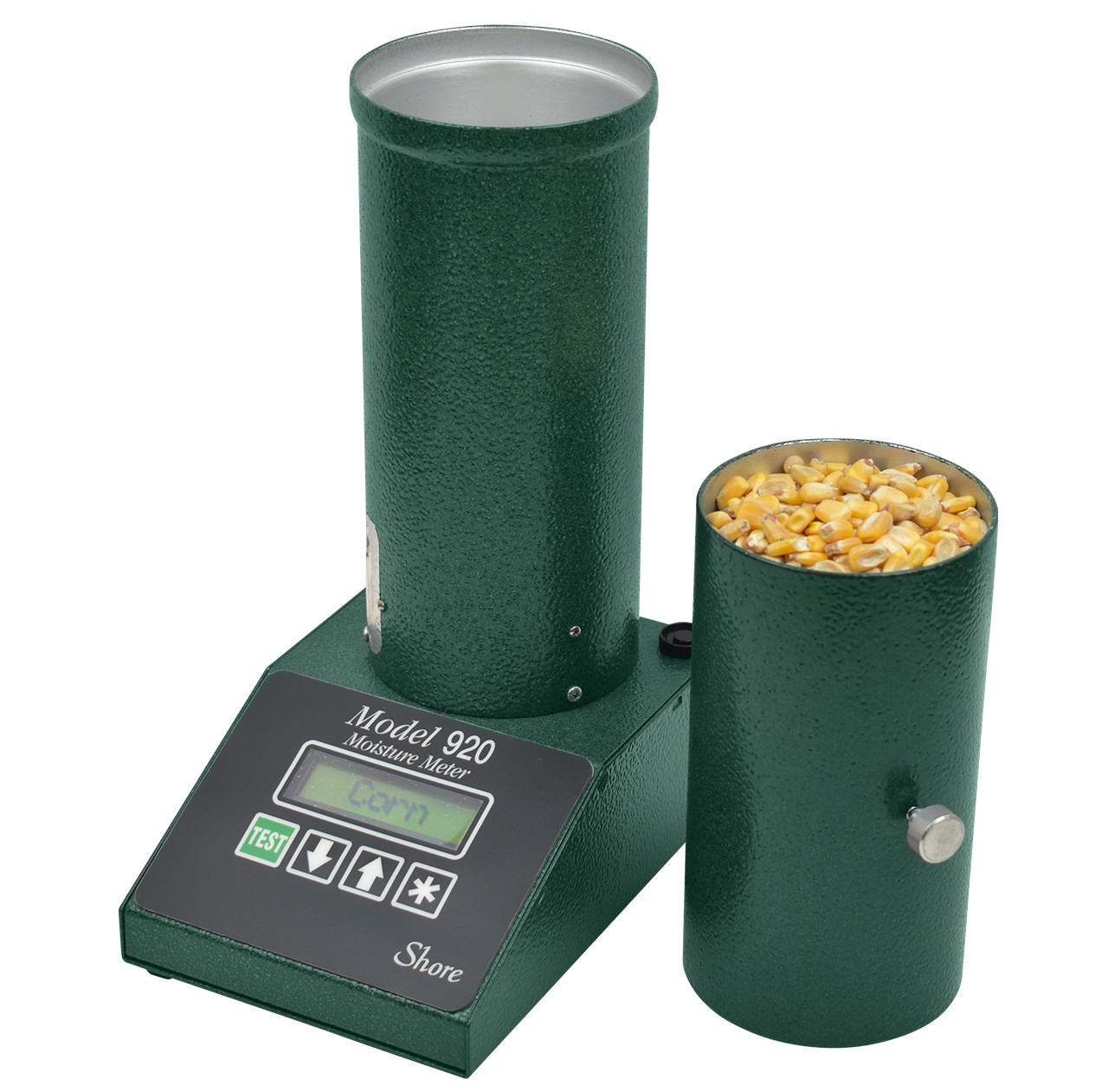Moisture Meter Acquiring Guide: What to Look for in High-Quality Instruments
Moisture Meter Acquiring Guide: What to Look for in High-Quality Instruments
Blog Article
The Ultimate Overview to Moisture Meters: A Comprehensive Summary and Just How They Can Conserve You Cash
In the world of building upkeep, construction, and different industries, the significance of precisely gauging wetness levels can not be overemphasized. Wetness meters work as crucial devices in finding and keeping track of moisture content in materials, assisting in preventing costly damages and making certain the high quality of items. Understanding the nuances of different kinds of dampness meters, their applications, and the potential cost-saving advantages they use can be a game-changer for organizations and specialists alike. Finding how these gadgets can not only streamline procedures yet additionally add to economic cost savings is a trip worth embarking on.
Kinds Of Moisture Meters
Numerous types of dampness meters are readily available for various applications in different markets. One usual kind is the pin-type moisture meter, which determines the electric resistance in between two pins placed into a product. This kind appropriates for wood, drywall, and various other building materials. Pinless dampness meters, on the other hand, usage electromagnetic sensor plates to check a bigger location without triggering damage to the material's surface. These meters are optimal for quickly assessing dampness levels in large locations such as floors and wall surfaces.
Moreover, there are also specialized moisture meters designed for particular materials like hay, soil, or grain. These meters offer precise dampness analyses tailored to the special homes of the material being examined. Infrared moisture meters gauge the thermal homes of a product to determine its dampness web content non-invasively, making them helpful for applications where pin or pinless meters may not be suitable. Comprehending the various sorts of dampness meters available can help industries pick one of the most suitable tool for their specific dampness dimension requirements.

Benefits of Utilizing Moisture Meters

Furthermore, making use of moisture meters can lead to boosted power performance. By recognizing areas with high moisture degrees, such as leaks or poor insulation, changes can be made to improve power conservation and minimize energy prices. In farming settings, dampness meters play a crucial function in enhancing plant yields by enabling farmers to keep track of dirt dampness degrees and make notified irrigation decisions. In general, the benefits of utilizing dampness meters span throughout different industries, supplying cost-effective solutions and promoting better quality assurance methods.
Just How to Select the Right Moisture Meter
Picking the ideal dampness meter entails thinking about essential factors such as material compatibility, measurement range, and calibration precision. When choosing a moisture meter, it's necessary to ensure home that the meter is appropriate for the certain product you will certainly be screening. Various materials have differing electrical residential or commercial properties that can impact dampness analyses, so selecting a meter created for your material is vital for exact results. In addition, take into consideration the dimension series of the moisture meter. Make sure that the meter can identify moisture degrees within the range required for your applications. Calibration precision is one more essential aspect to remember (Moisture Meter). Decide for a moisture meter with reputable calibration to make certain accurate and consistent readings. Some meters may need regular calibration modifications, so you could try these out comprehending the calibration process is important. By meticulously examining these aspects, you can select a wetness meter that fulfills your needs and supplies precise wetness dimensions for your tasks.
Correct Strategies for Moisture Meter Use
To ensure accurate dampness readings and take full advantage of the efficiency of a wetness meter, employing correct methods is important. When making use of a pin-type moisture meter, put the pins or probes right into the material being checked until they make full get in touch with. By following these appropriate methods, users can rely on their moisture meter to offer reliable dampness degrees, helping in preventing expensive damage or ensuring quality in various applications.

Expense Cost Savings With Moisture Meter Applications
Exactly how can the critical use of moisture meters lead to significant cost financial savings throughout numerous industries? In the farming market, wetness meters help in establishing the optimal time for gathering crops, avoiding over-drying or excess wetness that can affect the final item's top quality.

Furthermore, in the food processing market, moisture meters are vital for monitoring item top quality and ensuring compliance with safety and security regulations. By properly gauging wetness content in food, suppliers can avoid wasting, maintain freshness, and reduce waste, leading to substantial price financial savings. Overall, the strategic application of wetness meters is a useful investment that can lead to substantial price decreases and boosted efficiency across various industries.
Final Thought
In conclusion, dampness meters are important devices for gauging and discovering moisture degrees in numerous products. By making use of the ideal wetness meter and following proper strategies, users can properly protect against pricey problems caused by excess wetness.
Dampness meters offer as important tools in finding and keeping an eye on moisture web content in products, helping in avoiding costly problems and guaranteeing the top quality of products. Infrared wetness meters gauge the thermal homes of a material to establish its moisture material non-invasively, making them valuable for applications where pin or pinless meters might not be appropriate.Wetness meters supply invaluable benefits in precisely checking and examining dampness degrees in varied materials and environments. In farming settings, moisture meters play an essential function in maximizing plant returns by making it possible for farmers to check soil dampness degrees and make educated watering decisions.In final thought, dampness meters are useful devices for detecting and measuring dampness degrees in various materials.
Report this page